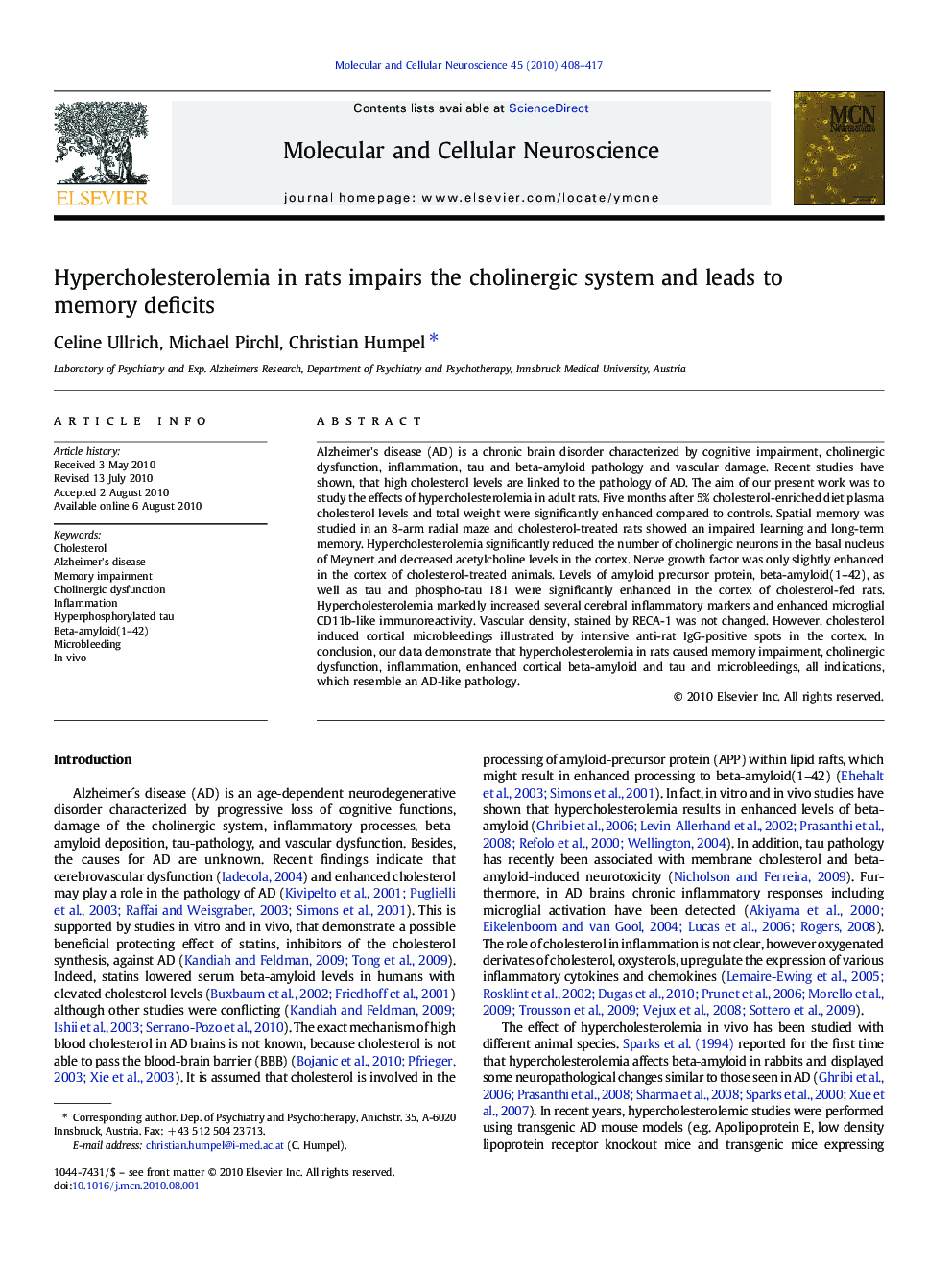| Article ID | Journal | Published Year | Pages | File Type |
|---|---|---|---|---|
| 10956613 | Molecular and Cellular Neuroscience | 2010 | 10 Pages |
Abstract
Alzheimer's disease (AD) is a chronic brain disorder characterized by cognitive impairment, cholinergic dysfunction, inflammation, tau and beta-amyloid pathology and vascular damage. Recent studies have shown, that high cholesterol levels are linked to the pathology of AD. The aim of our present work was to study the effects of hypercholesterolemia in adult rats. Five months after 5% cholesterol-enriched diet plasma cholesterol levels and total weight were significantly enhanced compared to controls. Spatial memory was studied in an 8-arm radial maze and cholesterol-treated rats showed an impaired learning and long-term memory. Hypercholesterolemia significantly reduced the number of cholinergic neurons in the basal nucleus of Meynert and decreased acetylcholine levels in the cortex. Nerve growth factor was only slightly enhanced in the cortex of cholesterol-treated animals. Levels of amyloid precursor protein, beta-amyloid(1-42), as well as tau and phospho-tau 181 were significantly enhanced in the cortex of cholesterol-fed rats. Hypercholesterolemia markedly increased several cerebral inflammatory markers and enhanced microglial CD11b-like immunoreactivity. Vascular density, stained by RECA-1 was not changed. However, cholesterol induced cortical microbleedings illustrated by intensive anti-rat IgG-positive spots in the cortex. In conclusion, our data demonstrate that hypercholesterolemia in rats caused memory impairment, cholinergic dysfunction, inflammation, enhanced cortical beta-amyloid and tau and microbleedings, all indications, which resemble an AD-like pathology.
Keywords
Related Topics
Life Sciences
Biochemistry, Genetics and Molecular Biology
Cell Biology
Authors
Celine Ullrich, Michael Pirchl, Christian Humpel,
